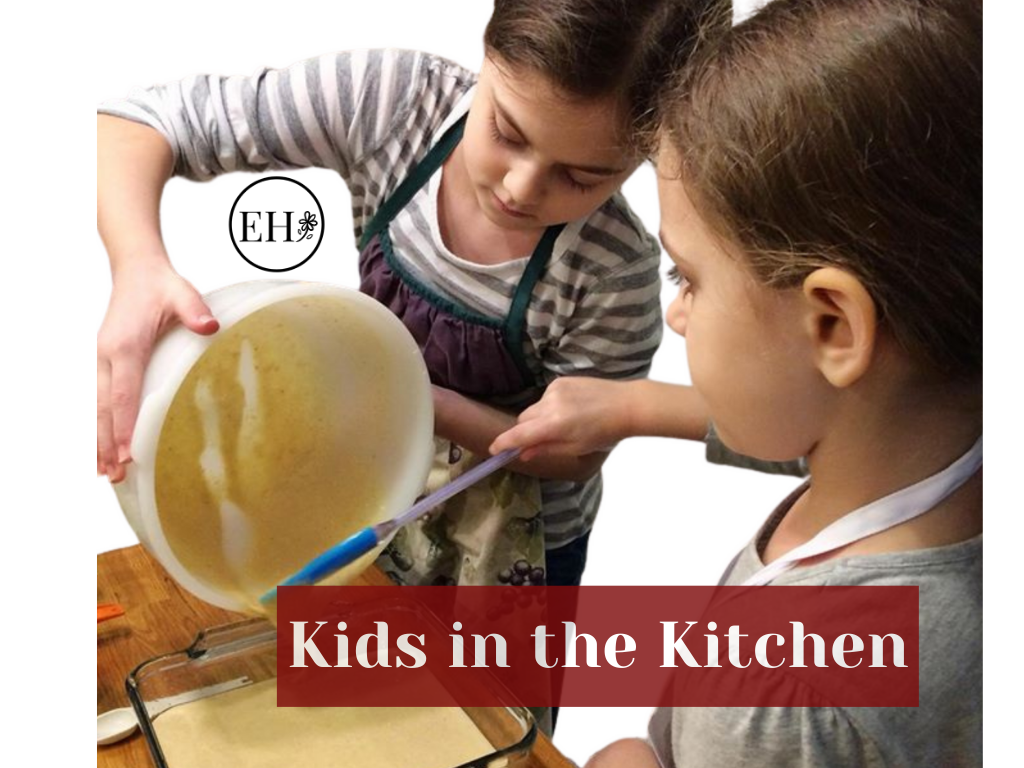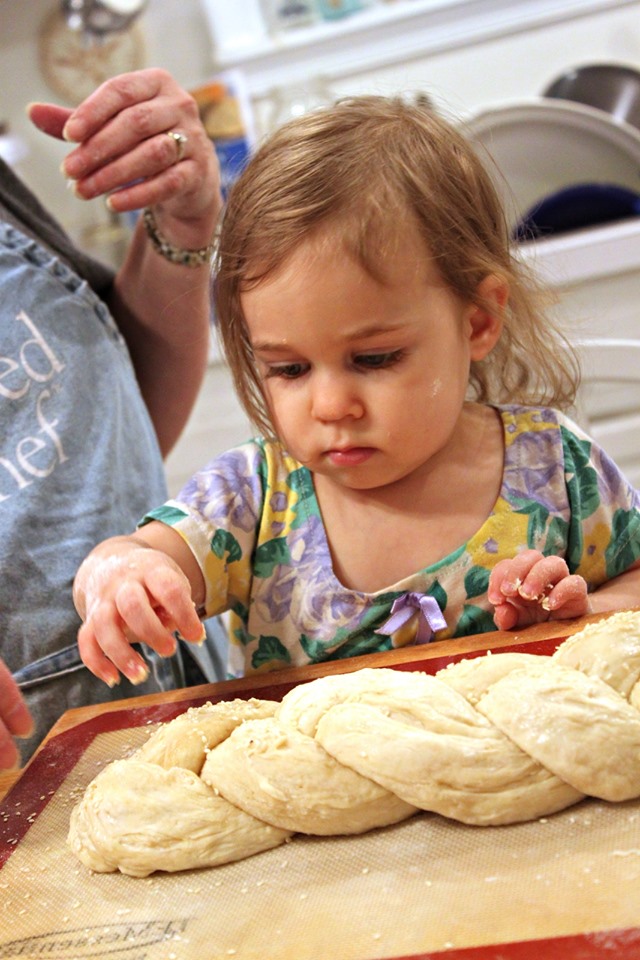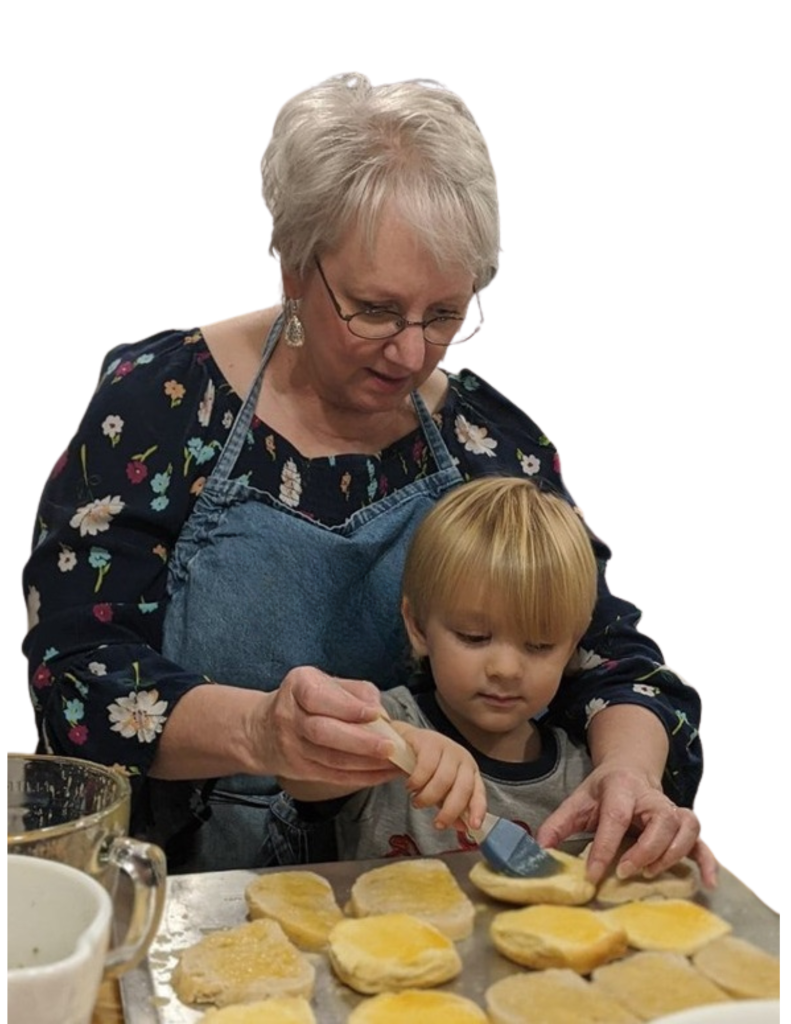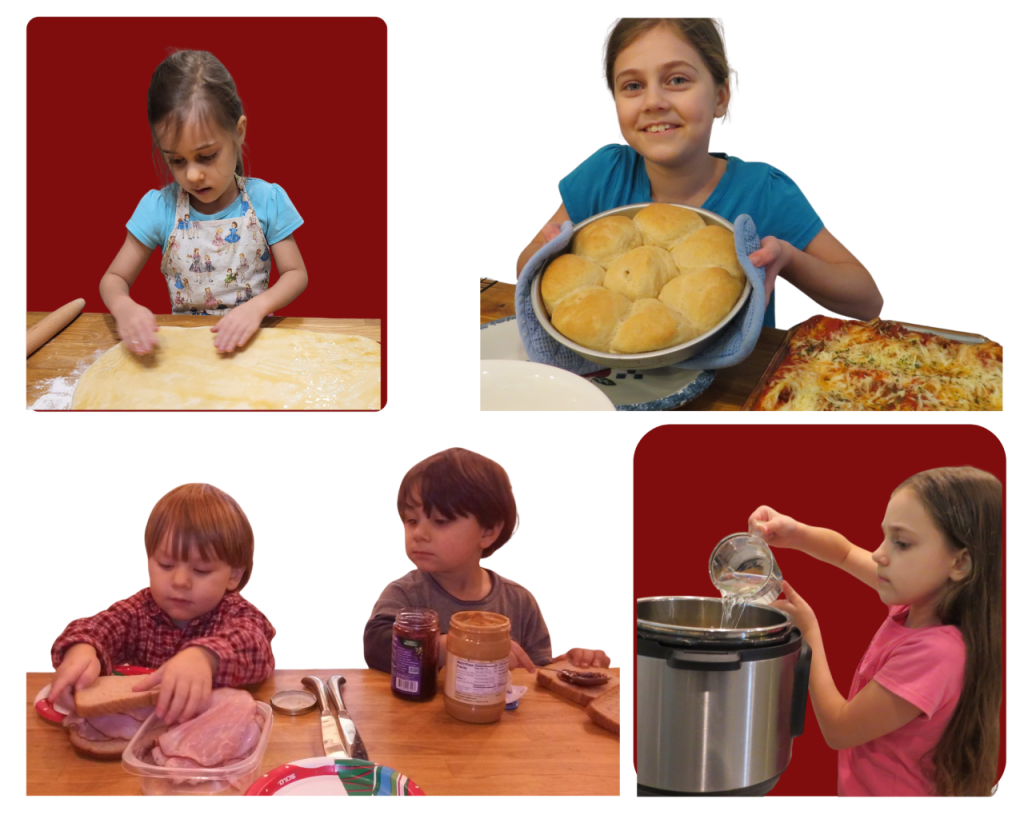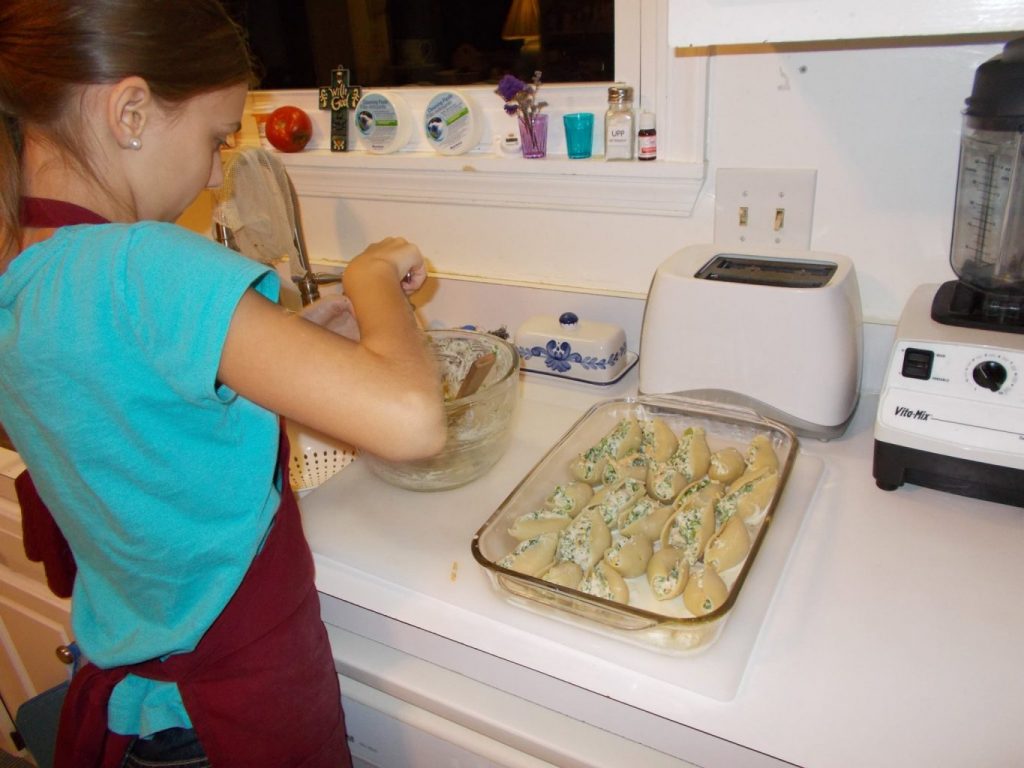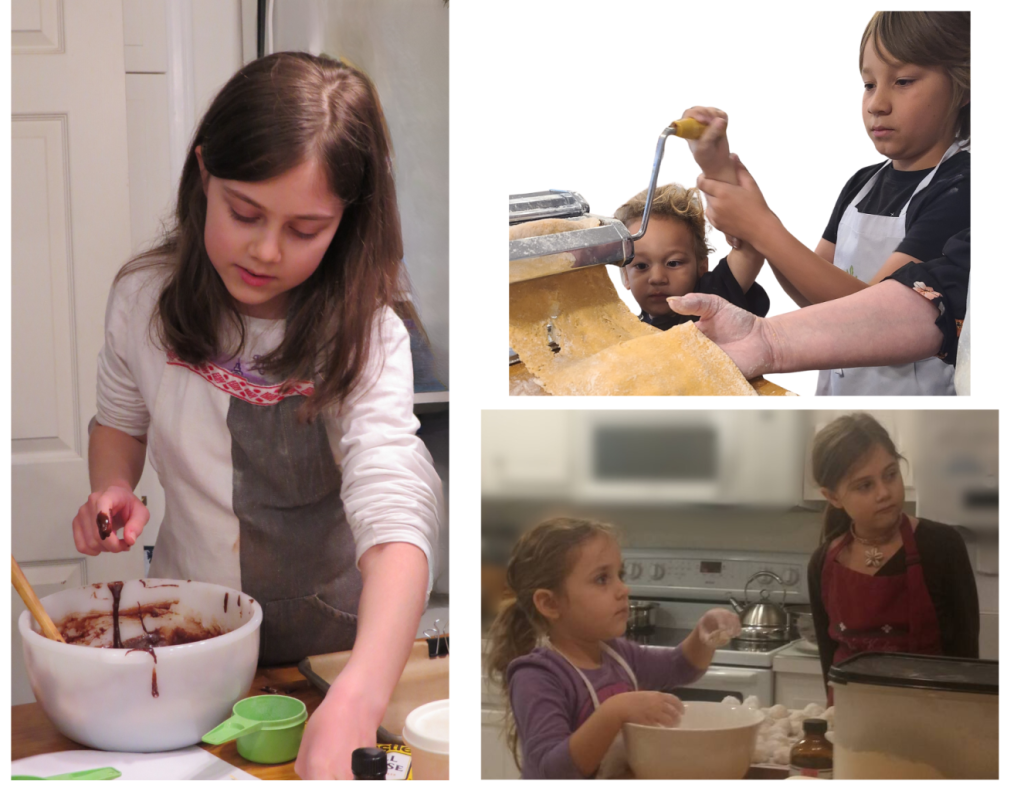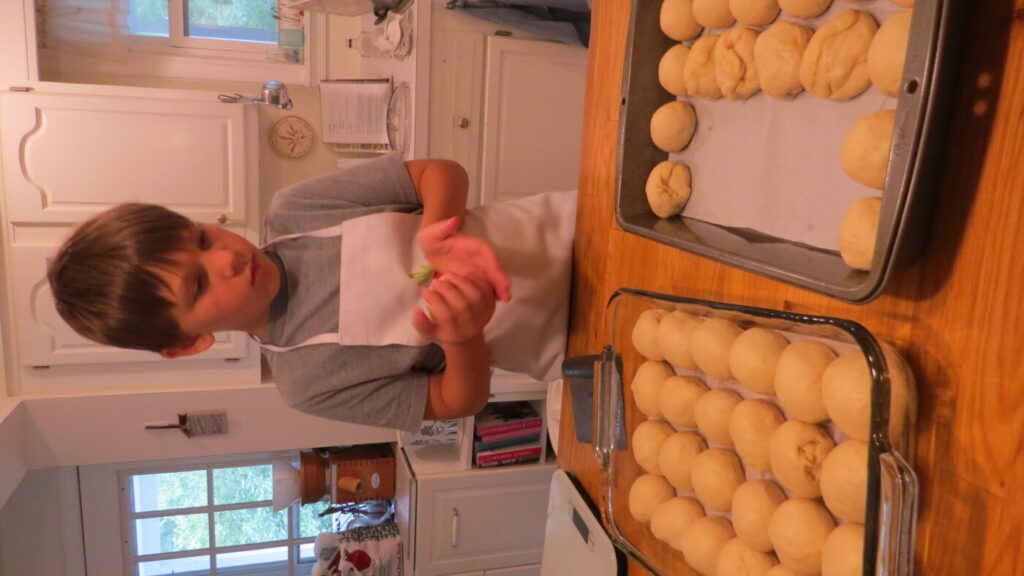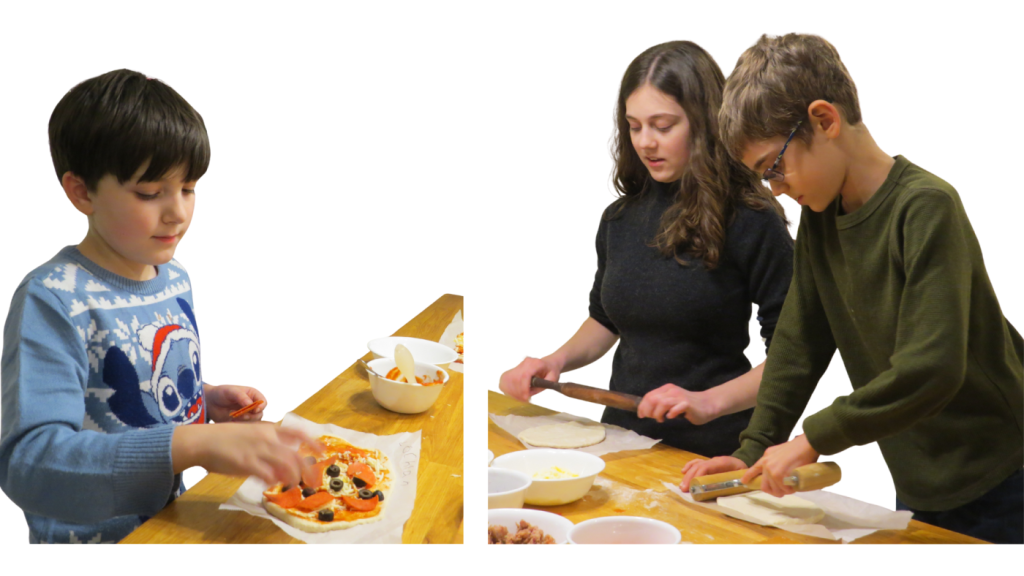Author Sue Gregg shares my passion for giving kids the chance to learn through everyday, real-life activities. In her cookbook, Lunches & Snacks, with Lessons for Children, Sue says,
“Children want to start helping in the kitchen at a very young age. . . . Take the time to teach your children what they can and want to learn at each age. This will pay great time dividends for you as they gain these skills and can perform them independently. Don’t be a supermom who does it all; be a smart mom who liberally engages the assistance of well-trained children.”
In my own family’s chore rotation, one child was designated as assistant cook for two months at a time, shadowing me in the kitchen to (a) learn cooking skills and (b) spend some one-on-one time with mom.
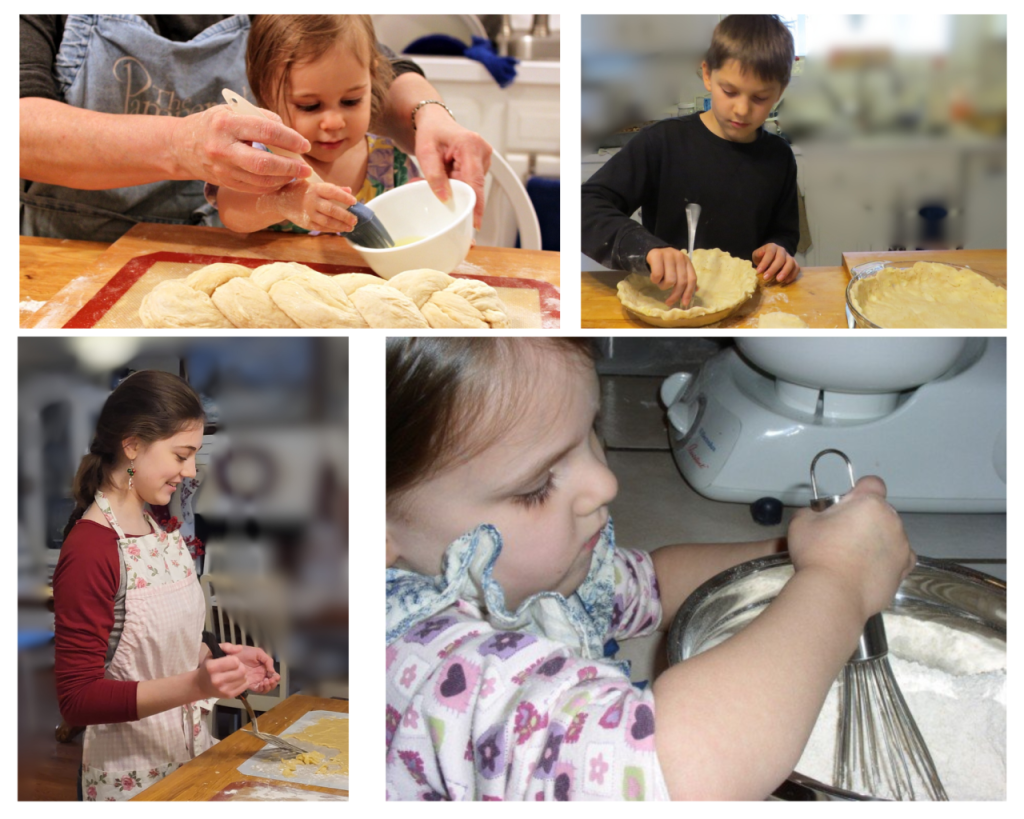 I know it can be difficult to get dinner on the table with little helpers at every meal, but we can be purposeful to include them as little apprentices periodically, even if not three times a day.
I know it can be difficult to get dinner on the table with little helpers at every meal, but we can be purposeful to include them as little apprentices periodically, even if not three times a day.
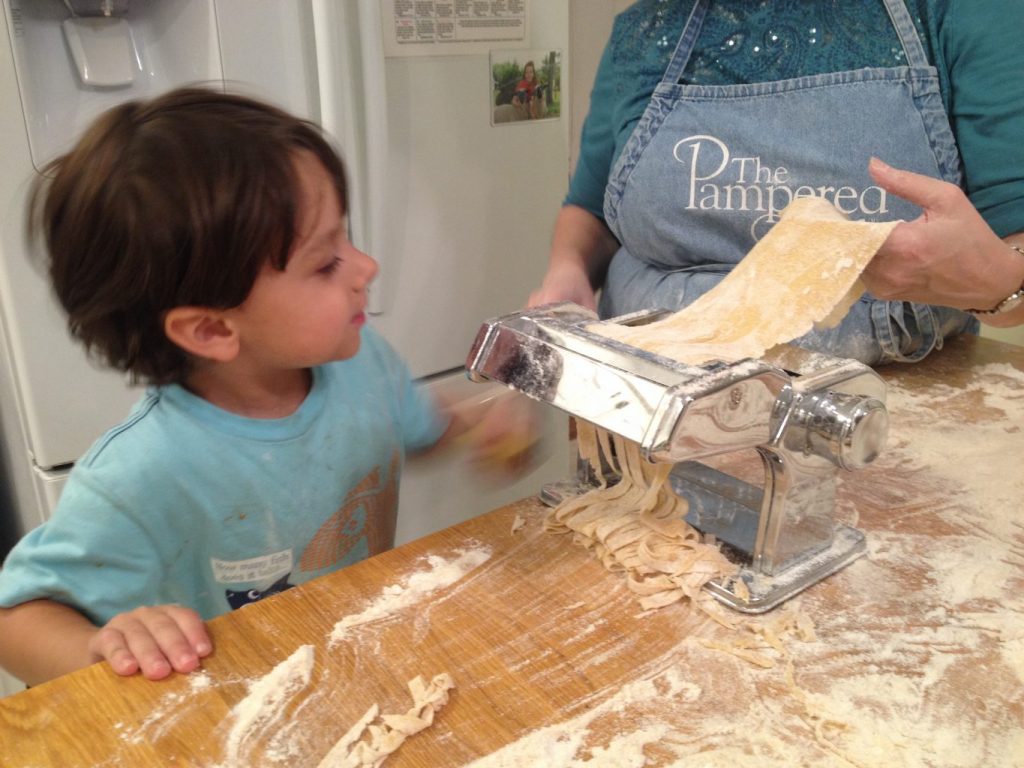
What Can They Do?
Sue stresses that what your 4- or 5-year-old can do will depend on what he learned at ages 2 and 3; skills build on previous experience, so give them the opportunity to get started early.
In Sue’s Lunches & Snacks cookbook, she shares some realistic, age-appropriate, developmentally appropriate expectations (provided below with permission):
Two-year-olds can:
- Experience taste, texture, and shape differences in foods while sitting at the table.
- Dip foods such as finger vegetables into a dip, or fish or chicken pieces into a crumb mixture.
- Put selected utensils and bowls in sink of soapy water.
- Scrub fresh vegetables with a vegetable brush (for example, potatoes).
- Tear, snap, or break fresh vegetables (such as green beans).
- Mix items such as salads or gelatin with a spoon.
- Cut with a table knife, such as slicing a banana.
- Spread with a table knife, such as peanut butter on crackers.
- Roll foods with both hands, such as meat balls.
- Peel with fingers (for example, bananas or hard-cooked eggs).
- Crack raw eggs (be prepared to pick out a bit of shell!).
- Do all of the above.
- Juice with a non-electric citrus juicer.
- Beat with an egg beater.
- Put napkins or single items on the table.
- Help clear the table.
- Wipe off the table (don’t require perfection!).
- Make table centerpieces (in his/her own way).
- Learn the names of different fruits and vegetables.
Older children can be a great help in the kitchen. They can:
- Do all of the above.
- Grate or shred with a hand grater.
- Peel with a vegetable peeler.
- Slice with sharp knives (under close supervision).
- Help with most recipes and food preparation.
- Fill a lunch bag with pre-made sandwiches and other items.
- Set the table by himself.
- Wash and rinse unbreakable dishes and load the dishwasher.
- Identify various grains, beans, and breads.
- Learn that a food cooked or raw is the same food in a different form.
I really like these lists and I’ve found that older elementary children can learn basic cooking skills through using most basic recipes. My own children learned from our classic Betty Crocker and Better Homes & Gardens cookbooks, as well as our Sue Gregg cookbook series (and more Hershey cookbooks than I should admit!).
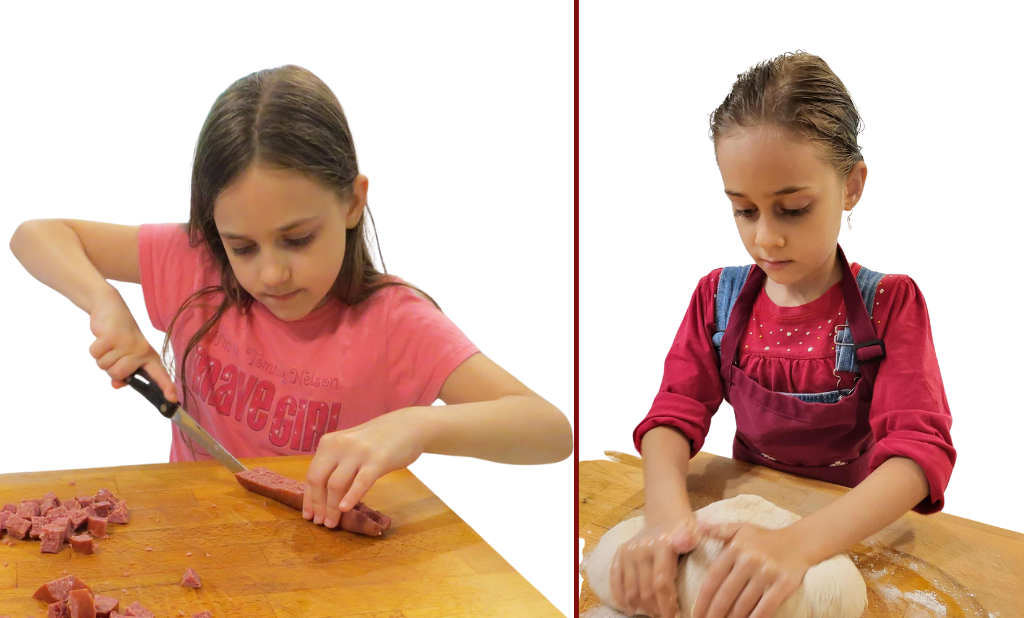
Later, they relied upon a compilation of our family’s favorite recipe adaptations in Everyday Cooking, which includes my “Basic Cooking Skills Checklist” that earned them their home economics credit and provided the foundation for their culinary experience.
Family Meal Preparation Builds More Than Strong Bodies
Not only can meal preparation time result in fun, delicious healthy meals to build stronger bodies, but it can also become positive family time, building stronger relationships and stronger independent living skills.
What are some of your family’s favorite recipes to prepare together with little ones or to set your older kids free to create on their own? I’d love to hear about them below!
(Most photos are by the author. A few are from Rebekah McBride of NoDeskRequired.com; used with permission.)
Resources for Kids in the Kitchen:
Lunches and Snacks, with Lessons for Children by Sue Gregg
The Young Chef, geared to ages 10-14ish
Everyday Cooking by Vicki Bentley
Eating Better cookbook series from Sue Gregg (More than a cookbook series—this is a cooking and nutrition curriculum in spiral binding!)
Streamlining Mealtime for the Homeschool Family by Sarah Avila, Holy Spirit-Led Homeschooling
Getting Dinner on the Table . . . The SAME Day You Homeschool chapter in Home Education 101
Eat Your Way Across the U.S.A. by Loree Pettit
“Baking with Whole Grains” (comprehensive course for high school) by Sue Gregg
Whole Foods Cooking course with Sue Gregg
Kids Cook Real Food by Katie Kimball (These fun streaming e-courses equip your kids with kitchen skills and the ability to prepare a wide variety of recipes.)
Eat Your Way Around the World by Jamie Aramini
Cooking with Kids Pinterest page
Cooking with Kids from PBS Kids
Raddish Kids – a cooking club for kids! They learn basic skills, help prepare several themed dishes from each kit. Includes tool-of-the-month instruction card, recipes, and badge for mastering the month’s skill (you provide the food). May be used for multiple children (add-ons available).
(Lists excerpted from Sue Gregg’s cookbook, Lunches & Snacks with Lessons for Children, pages 24-25; used with permission.)

